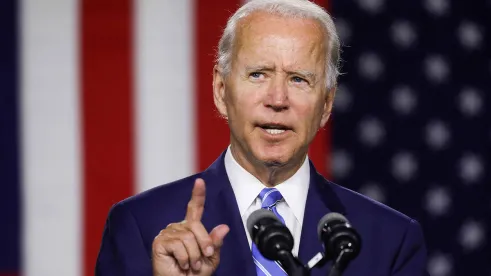President Biden issued his second veto late last week. The President’s second veto protects a U.S. EPA rule that went into effect on March 20, 2023. That rule redefines “waters of the United States” (WOTUS), and at a high conceptual level, returns the Agency’s interpretation of WOTUS to that of the Obama administration, an interpretation that was revoked and replaced by the Trump administration.
This matter has been hotly contested in the federal courts. Indeed, the U.S. Supreme Court is poised to issue a ruling within the next several weeks on Sackett v. EPA, a decision which could substantially revise and narrow the Agency’s definition of “waters of the United States.” The Court’s decision here could send the Biden administration’s revised definition of WOTUS back to EPA for changes needed in-line with the Court’s decision, if and when issued.
Regardless, it is clear that environmental regulatory affairs and litigation have become matters of national importance. Indeed, Biden’s first and second vetoes turned on environmental matters. The President’s first veto disapproved of a Congressional joint resolution that attempted to nullify a U.S. Department of Labor regulation on the consideration of Environmental, Social, and Governance (ESG) factors when investing in retirement accounts (which we wrote about here), and the President’s second veto focused on a different environmental matter: WOTUS.
On March 9, 2023, in the run-up to Biden’s second veto, the U.S. House of Representatives approved Joint Resolution 27. This joint resolution would have given EPA’s revised definition of WOTUS “no force or effect.” By a vote of 227-198, nine Democrats joined all House Republicans (except one) in support of the joint resolution. The U.S. Senate, in turn, approved the same Joint Resolution on March 29, 2023, by a vote of 53-43, with five Democrats joining all Senate Republicans (except one). Thus, the Joint Resolution was sent to Biden’s desk, where, as mentioned above, the President issued the second veto of his administration.
Now that President Biden has vetoed Congress’ joint resolution disapproving of EPA’s revised definition of WOTUS, Congress may attempt to override the President’s veto. However, overcoming the President’s veto requires a two-thirds majority in both chambers. With divided government—that is, the House and Senate having different political parties in the majority—that margin is unlikely. Therefore, EPA’s revised definition of WOTUS is likely to remain in effect until ongoing litigation concerning the matter or the Court’s decision in Sackett holds otherwise.
Garrett Kral, law clerk at Hunton Andrews Kurth, also contributed to this article.





 />i
/>i

